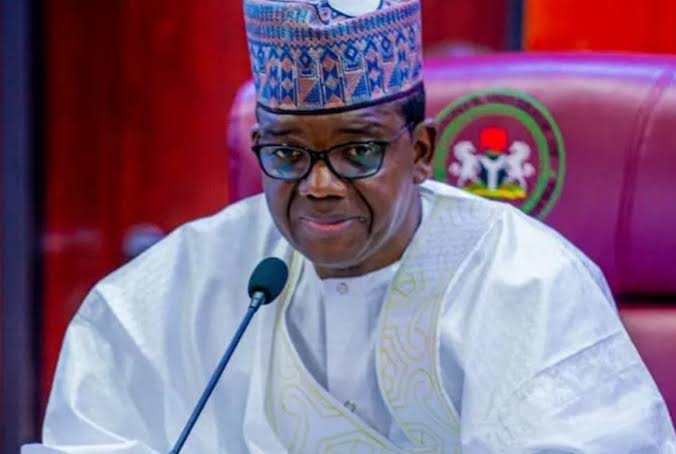Kanu-Agabi would lead a team of lawyers, including Senior Advocates of Nigeria (SAN), when the suit challenging the defections would be filed at the Federal High Court in Abuja this week.
A PDP source said, “A combined reading of Section 221 of the 1999 Constitution and the pronouncements of the Supreme Court in Faleke v. INEC (2016) are clear in holding that it is the political party that stands for election, that votes scored in election belong to the political party, and that the candidate nominated to contest at an election by his party acts only as the agent of his party.”
Section 221 of the 1999 Constitution states, “No association, other than a political party, shall canvass for votes for any candidate at any election or contribute to the funds of any political party or to the election expenses of any candidate at an election.”
The legal team would also be relying on Sections 179 and 181 of the 1999 Constitution, as amended, and their implications and status in law, taking into account the Supreme Court judgement of June 2019 that brought in Matawella as the Zamfara State governor.
PDP would seek the interpretation of the entire Section 68 of the constitution as regards members of the National and State assemblies, who also defected from PDP to the APC with Matawalle.
Section 68 states, “(1) A member of the Senate or of the House of Representatives shall vacate his seat in the House of which he is a member if –
“(a) He becomes a member of another legislative house.
“(b) Any other circumstances arise that, if he were not a member of the Senate or the House of Representatives, would cause him to be disqualified for election as a member…
“(e) Save as otherwise prescribed by this Constitution, he becomes a member of a commission or other body established by this Constitution or by any other law…
“(f) Without just cause he is absent from meetings of the House of which he is a member for a period amounting in the aggregate to more than one-third of the total number of days during which the House meets in any one year;
“(g) Being a person whose election to the House was sponsored by a political party, he becomes a member of another political party before the expiration of the period for which that House was elected; Provided that his membership of the latter political party is not as a result of a division in the political party of which he was previously a member or of a merger of two or more political parties or factions by one of which he was previously sponsored.”
While some senior lawyers insist that no law prevents an elected governor from leaving for another party, some argue that the governor should relinquish his mandate on account of the platform with which he came into office.



